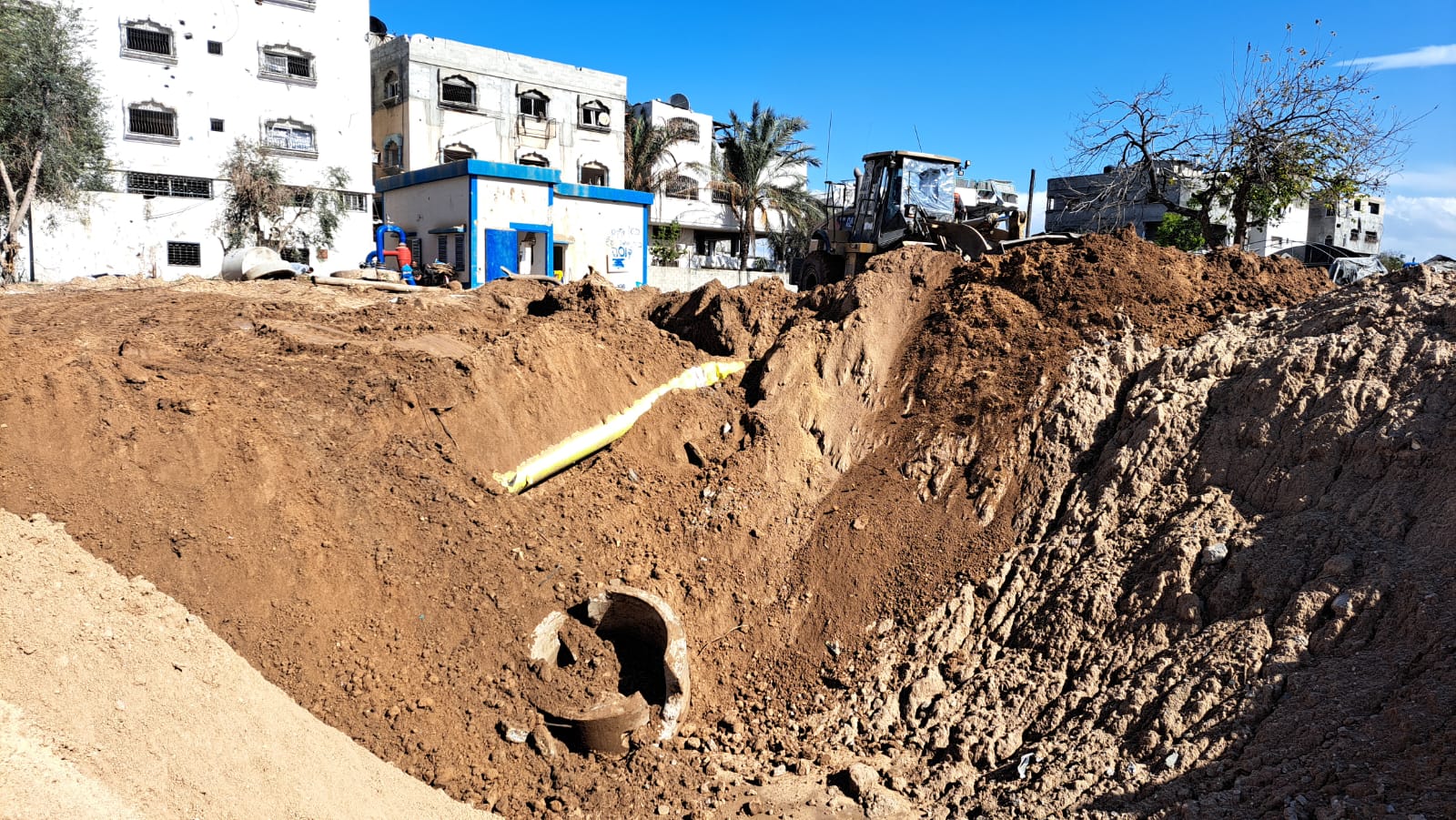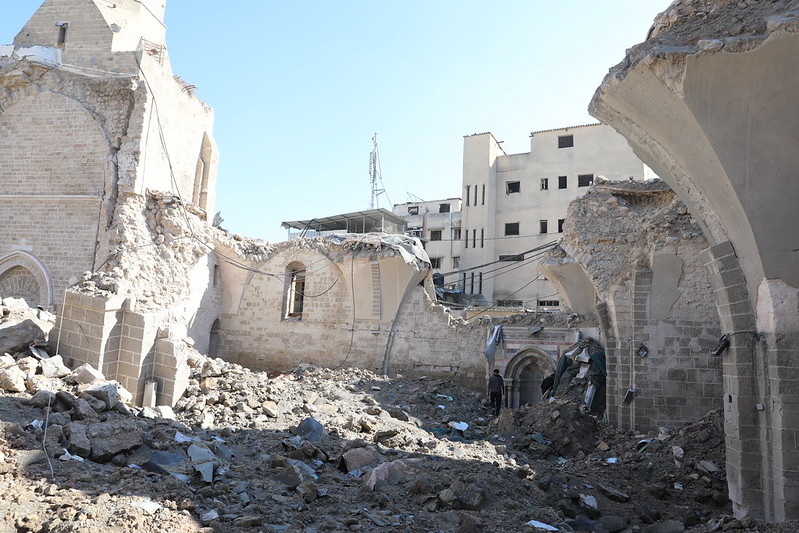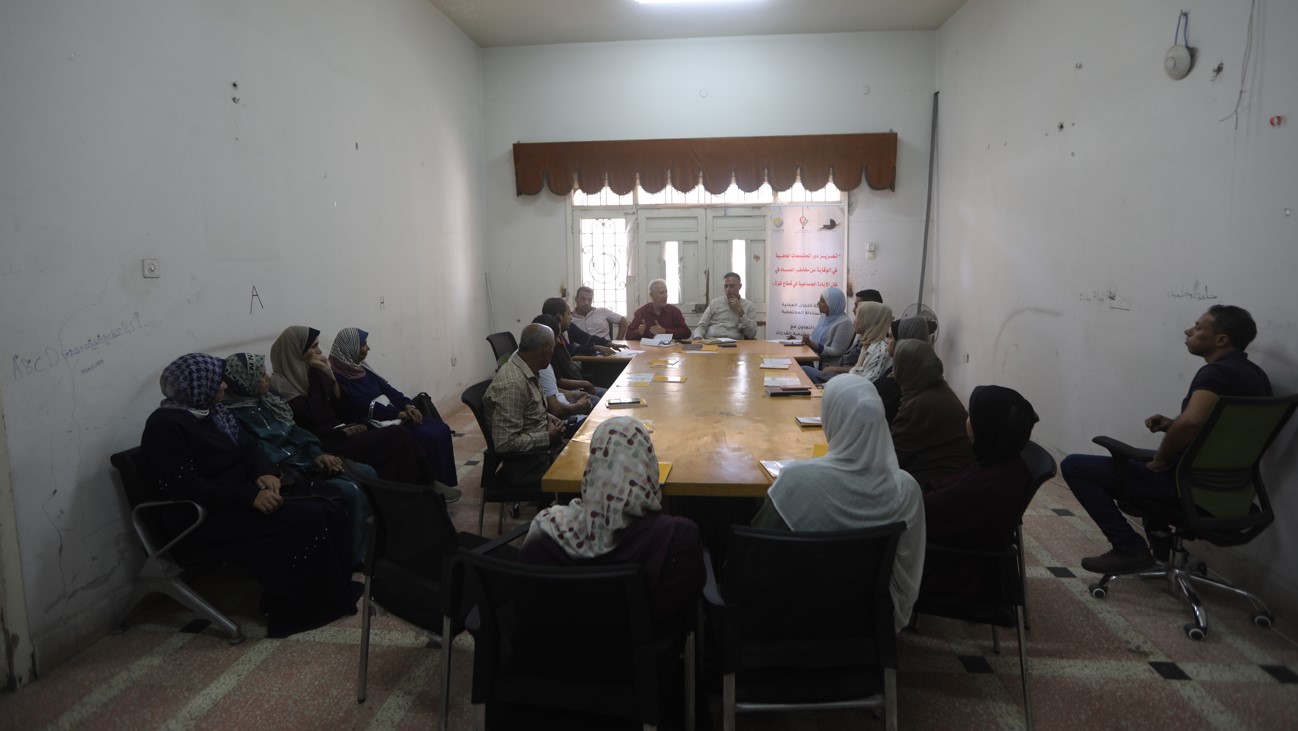
إعلام البلدية
أكدت بلدية غزة أن تصعيد الاحتلال لحرب الإبادة يفاقم أزمة العطش التي تعيشها المدينة، ويزيد من حجم الكارثة الصحية والبيئية ومعدلات انتشار الأمراض والأوبئة بسبب النقص الحاد في المياه، موضحة أن كمية المياه المتوفرة تقل عن 25% من الاحتياج اليومي للمدينة.
وأوضحت البلدية أن الكمية المتوفرة حاليًا من المياه تصل عبر خط "ميكروت" وتُقدَّر بنحو 15 ألف كوب يوميًا، وهي كمية غير مستقرة، بالإضافة إلى 10 آلاف كوب تُنتَج من آبار المياه المحلية الواقعة في وسط المدينة وفي المناطق التي تتمكن طواقم البلدية من الوصول إليها.
وأضافت أن تدمير بعض الآبار المركزية، مثل آبار الصفا وآبار شمال المدينة، ووقوعها في مناطق خطرة يتوغل فيها الاحتلال، وعدم تمكّن الطواقم من الوصول إليها، يفاقم الأزمة ويزيد من حدة العطش الشديد في المدينة.
وبيّنت أن الدمار الكبير والواسع الذي لحق بمرافق المياه وشبكاتها وآبارها نتيجة حرب الإبادة، إلى جانب تكدّس غالبية المواطنين في مساحة صغيرة من المدينة، أدّيا أيضًا إلى تفاقم الأزمة وعدم وصول المياه إلى مناطق واسعة، لاسيما في شمال المدينة وجنوبها الغربي، التي شهدت توغلات إسرائيلية متكررة.
وتناشد بلدية غزة المجتمع الدولي بضرورة التحرّك العاجل وتوفير الاحتياجات الطارئة للبلدية، للحد من أزمة العطش، وإنقاذ الحياة الإنسانية في المدينة.
.
Gaza Municipality: Escalation of the Genocidal War Deepens the Water Crisis – Urgent Intervention Needed
Municipal Media Office
Gaza Municipality affirmed that the escalation of the genocidal war by the Israeli occupation is worsening the water crisis in the city. This has intensified the health and environmental catastrophe and increased the spread of diseases and epidemics due to the acute shortage of water. The Municipality explained that the available water supply meets less than 25% of the city’s daily needs.
It clarified that the current supply comes through the “Mekorot” pipeline, providing about 15,000 cubic meters per day, though the flow remains unstable. In addition, around 10,000 cubic meters are produced from local wells located in central Gaza and in areas that municipal crews are still able to access.
The Municipality added that the destruction of some central wells, such as the Safa wells and those in northern Gaza, along with their location in areas heavily penetrated by the occupation and the inability of municipal crews to reach them, has exacerbated the crisis and increased the severity of extreme thirst in the city.
It further noted that the extensive destruction inflicted on water facilities, networks, and wells as a result of the genocidal war, in addition to the overcrowding of the majority of residents into a small portion of the city, has also worsened the crisis and prevented water from reaching large areas—particularly in the northern and southwestern parts of Gaza, which have witnessed repeated Israeli incursions.
Gaza Municipality urgently calls on the international community to take immediate action and provide the Municipality with the necessary emergency supplies to mitigate the water crisis and save lives in the city.

